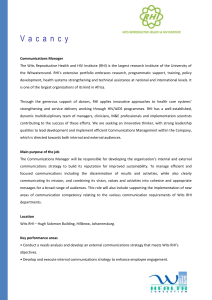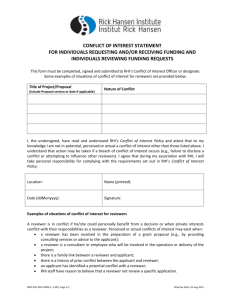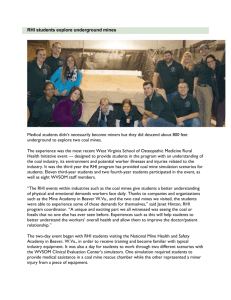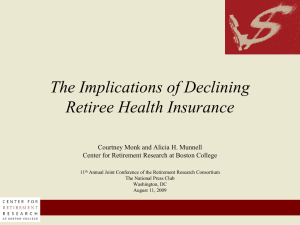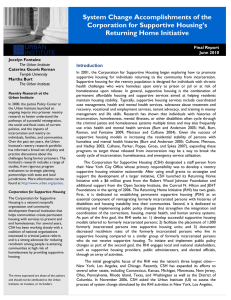The Decline in Employer- Sponsored Health Insurance for Americans
advertisement
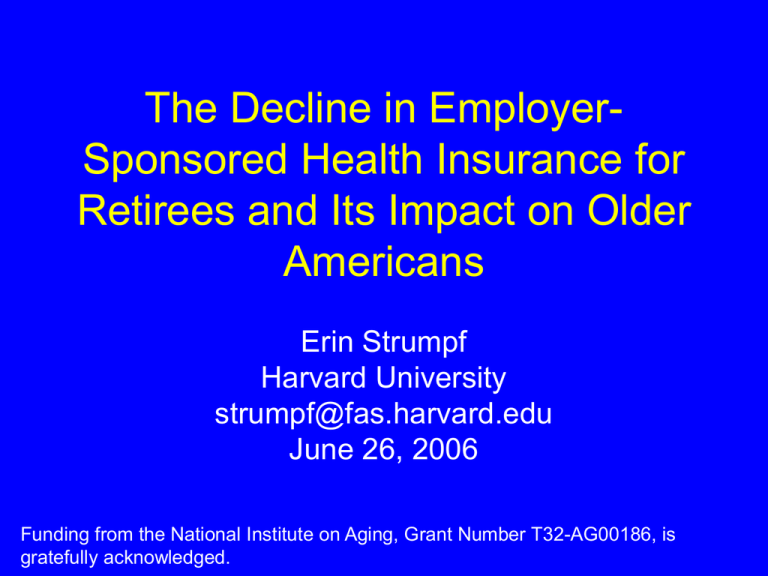
The Decline in EmployerSponsored Health Insurance for Retirees and Its Impact on Older Americans Erin Strumpf Harvard University strumpf@fas.harvard.edu June 26, 2006 Funding from the National Institute on Aging, Grant Number T32-AG00186, is gratefully acknowledged. A Major Shift In Retiree Benefits • Employer-sponsored health insurance is an important source of coverage for older Americans • Rates of employer offer of retiree health insurance (RHI) have declined from 66% of large firms in 1988 to 33% in 2005 • We can expect future cohorts of retirees will have much lower rates of RHI coverage • What are the implications for labor force participation, risk protection and health? Health and Retirement Survey 1992-2002 • Offer: can continue current employer-sponsored coverage in retirement • Health Shocks: acute (heart attack, stroke) and chronic (diagnosis of diabetes, high blood pressure) • Full-Time Retirement: not working or looking for work and indicates retirement • Health: self-reported health, difficulty with activities of daily living Empirical Strategy • Panel of respondents aged 47-64 who report having employer-sponsored health insurance in 1992 (N = 6,889) • Compare outcomes for those with and without an RHI offer (1994-2002) • Use health shocks to compare the effect of RHI offer for those in poor health Identifying Assumptions • Effect of retiree health insurance offer: – Given employer-sponsored coverage, those with and without an RHI offer are similar at baseline • Differential effects by health status: – Given baseline health status, health shocks are exogenous Full-Time Retirement Before Age 65 • Retirement it = α + β1 RHIoffer i1 + β2 HealthShock it + β3 RHIoffer i1*HealthShockit + Xit + Yeart + ε • Covariates include: – Respondent’s and spouse’s demographics and health – Household income and assets – Pension information, industry and occupation Estimated Effect of RHI Offer on Full-Time Retirement RHI Offer OLS Percent Change 0.0721** 35% [0.0099] Acute Health Shock 0.0979* 49% [0.0375] Acute*Offer -0.0048 -2% [0.0492] R squared 0.1446 N 13,386 *significant at 1%, ** 0.1% Standard errors are adjusted for the complex survey design and clustered at the individual level. Out-of-Pocket Medical Care Spending • Out-of-pocket spending after controlling for demographics, baseline health status and year • Percentile treatment effect = spendp (offer = 1) – spendp (offer = 0) • RHI offer decreases out-of-pocket spending by 6%, or $275, on average in the top 40% of the spending distribution • Among retirees, RHI decreases out-of-pocket spending by 21%, or $1,300 Out of Pocket Medical Spending Residuals $ 0 500 Less than age 65, Covariate Adjusted 0 20 40 60 80 percentile centile treatment estimate 95% CI upper bound 95% CI lower bound 100 Other Results • RHI offer has no significant effects on insurance coverage • Suggestive results that RHI offer increases outpatient medical care utilization • No evidence of an effect of RHI offer on health Policy Implications • The current decline in RHI offer rates is likely to impact future cohorts of retirees – Decrease early retirement rates – Decrease protection from high out-of-pocket medical costs • Policymakers and researchers should start now to examine the efficiency and effectiveness of different sources of health insurance coverage for the near-elderly population

